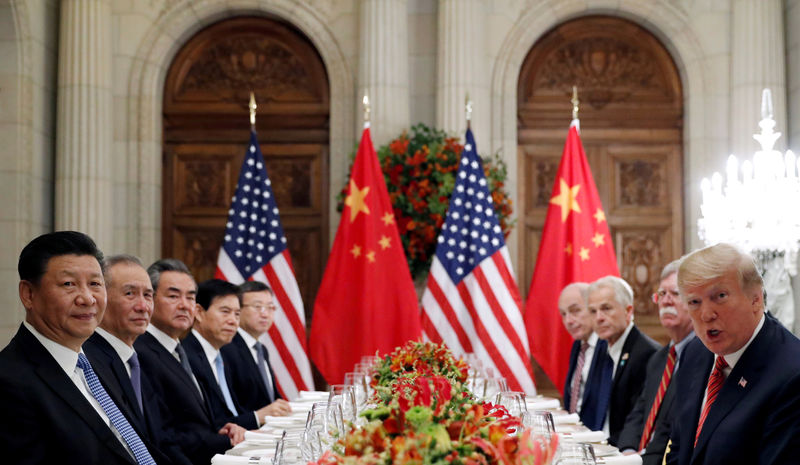Trump administration authorizes CIA for covert action in Venezuela - Bloomberg
Investing.com -- The latest signals from Washington and Beijing could ease immediate fears of uncontrolled escalation, Wolfe Research strategists say, but argue that any return to deeper cooperation remains unlikely.
The comments follow a volatile stretch in markets triggered by threats of 100% tariffs and China’s sweeping export control announcement, which prompted a rare risk-off move on Friday.
Over the weekend, the tone from both sides softened. President Trump reassured investors that “November 1 is an eternity” and sent a de-escalatory message: “Don’t worry about China, it will all be fine,” which Wolfe strategist Tobin Marcus describes as effectively telling investors they can “safely buy the dip.”
Beijing’s Ministry of Commerce also stressed that its export controls were not full bans and that licenses would be granted, signalling an effort to present the measures as limited rather than punitive.
However, Marcus believes that the underlying friction has not been resolved. Both sides maintain that the other violated the May truce, with Washington arguing China’s rare earth move “can’t stand,” while Beijing insists it is acting within its rights as a “responsible major country.”
Marcus notes that China is signaling it wants to “protect the hard-won outcomes of consultations,” framing its stance around restoring the truce rather than negotiating broader relief.
Despite the de-escalatory rhetoric, he cautions that structural issues remain unaddressed. The U.S. is still preparing tariff enforcement mechanisms, and China has not signaled any intent to walk back its rules entirely.
Both are seeking face-saving off-ramps, but Marcus writes that this “gets us back to a truce at best, with the hoped-for ‘big deal’ still looking distant and challenging.” He adds that Trump will “resist being bullied into a deal that Beijing would regard as fair,” reinforcing Wolfe’s baseline that détente, not resolution, is the more realistic outcome.
Marcus suggests Beijing may have hoped to gain leverage by using rare earths as a pressure point, but now appears more focused on managing the backlash.
The strategist points out that market reaction has so far followed previous trading patterns, with investors inclined to buy dips on signals of willingness to talk, consistent with earlier episodes this year where markets responded positively to even modest signs of restraint.
Yet he stresses that even in its more constructive assessment last month, it warned not to expect tariff relief this year. With neither side prepared to make concessions that would be viewed domestically as weakness, the strategist argues that détente rather than resolution is the most plausible outcome for now.
